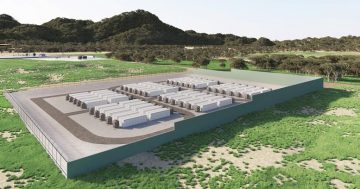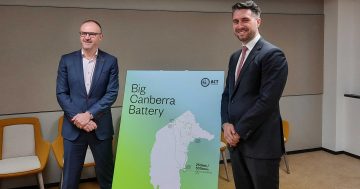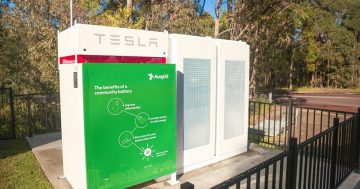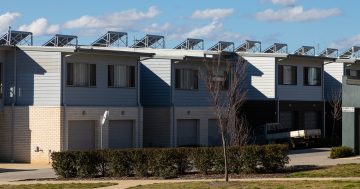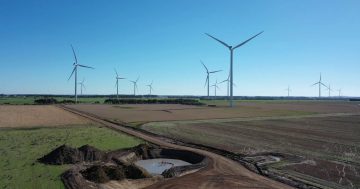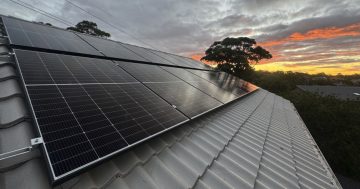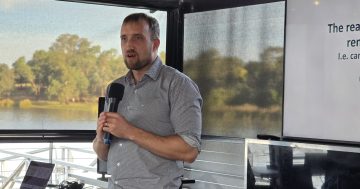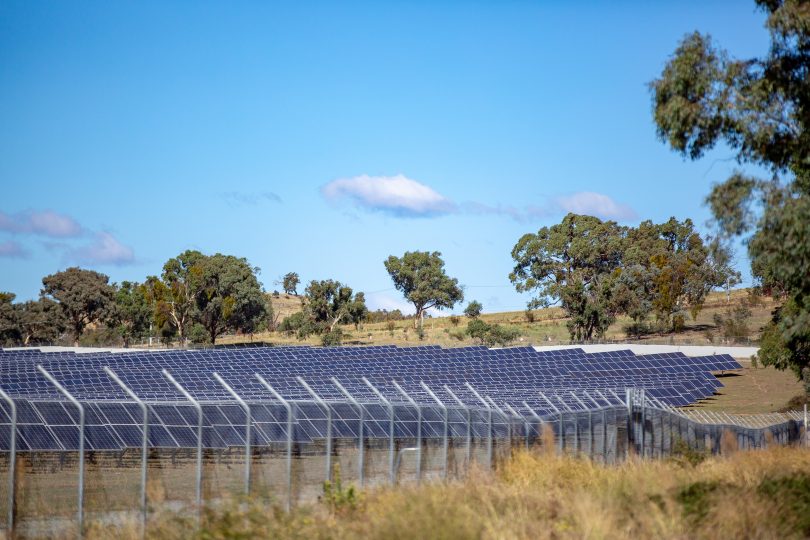
Mugga Lane Solar Park: the Big Battery will better integrate the increasing supply of renewable energy in the network and support more renewable power sources. Photo: File.
The ACT Government has plugged into the market to spark interest in contributing to the Canberra Big Battery initiative, a key part of its climate change policy.
It wants to hear from industry about how the battery storage network could be built in the ACT.
Under the Labor-Greens Parliamentary Agreement, the government has committed to delivering at least 250 MW of ‘large-scale’ battery storage, which will be distributed across the ACT.
There are already two battery projects in the works – French company Neoen plans to deliver a 100 MW facility in Jerrabomberra, while Spanish firm GPG will build a 10 MW battery in Beard.
The government says the Canberra Big Battery storage project aims to increase network reliability by reducing pressure and congestion on the grid, better integrate the increasing supply of renewable energy in the network, reduce electricity price spikes, and generate new revenue opportunities for the ACT.
It will also support the addition of more renewable power sources to the network.
A letter to industry says the government is open to innovative delivery solutions through various investment, procurement and operational models and designs.
This may mean several batteries with a variety of capacities delivered through one or many organisations, and may include a small number of large-scale batteries (50 MW+), as well as a larger number of smaller, ‘precinct scale’ batteries.
“Batteries could be connected to the ACT’s transmission or distribution network, located at government sites such as bus depots or co-located with large-scale renewable generation in the ACT,” the letter says.
The government is also open to a variety of financial approaches to deliver the battery systems.
After this market sounding, the government will hold an expression-of-interest process in mid-2021, followed by a 12-month procurement process starting next year.
This may involve different procurement packages focusing on different battery systems based on size, location or purpose.
Neoen and GPG won the ACT’s fifth Renewables Reverse Auction to supply the ACT with an extra 200 MW of electricity from their wind farms in South Australia and Victoria respectively.
Part of the deal was for the companies to provide big batteries.












